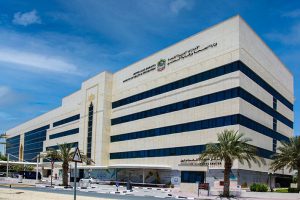DUBAI/ WAM
The Ministry of Health and Prevention (MoHAP) held a coordination meeting with representatives from private hospitals to discuss ways to improve the national newborn screening programme and ensure its alignment with the UAE’s approved national standards in accordance with federal health legislation. The meeting was held as part of the Ministry’s commitment to promoting proactive healthcare and achieving the highest standards of quality in preventive health services. These measures are implemented in line with the Cabinet Resolution on newborn medical screening and the directives issued by the Health Regulation Sector, which define the procedures, standards, and regulatory framework for newborn examinations.
They include ongoing monitoring and validation of tests to ensure accuracy, alongside comprehensive clinical and biochemical assessments. The meeting aimed to support MoHAP’s ongoing efforts to standardise regulatory and technical procedures for newborn screenings, ensuring the highest levels of accuracy and efficiency in early detection of genetic disorders, hereditary diseases, and other conditions.
These efforts are supported by ‘Riayati,’ the digital healthcare platform for the National Unified Medical Record (NUMR) programme featuring an integrated database. This platform offers innovative solutions in automation and health data management. The platform enhances patient safety, improves efficiency and service quality, and facilitates timely access to patient records, supporting informed clinical decision-making and advancing MoHAP’s preventive health and service improvement objectives. The meeting addressed several strategic themes, including a detailed review of the UAE Cabinet Resolution concerning newborn medical screening. This resolution outlines the procedures, protocols, and regulatory framework governing the screening process, ranging from test result follow-ups and accuracy verification to clinical and biochemical evaluations.
It also includes the standard protocols for hearing screening and the detection of critical congenital heart defects. Additionally, the meeting reviewed circulars issued by the Health Regulation Sector, aimed at ensuring unified and consistent implementation of newborn screening protocols across both public and private healthcare institutions in the country, and raising community awareness about the importance of these critical screenings. The programme is executed through a unified network of government and private hospitals across the UAE, laying the foundation for a unified approach to early detection, preventing potential complications, and designating specialised reference laboratories. MoHAP stressed that safeguarding the health of newborns is a strategic priority within the UAE’s national healthcare system, reaffirming its keenness to provide integrated preventive and therapeutic healthcare services that align with the latest global standards and advanced medical practices.
The Ministry added that it is committed to promoting a culture of disease prevention, supported by advanced healthcare systems capable of providing sustainable healthy lifestyles for all segments of society. The Ministry also highlighted the importance of effective partnership with the private health sector, describing it as a strategic ally in achieving national health objectives. It emphasised that ongoing coordination and the exchange of expertise among all components of the health system are fundamental to building a resilient and integrated healthcare framework. MoHAP noted that newborn screening involves collecting a blood sample for biochemical testing at the National Reference Laboratory to identify potential health conditions, particularly hereditary disorders.
The screening also includes hearing assessments to detect impairments, cardiac examinations to identify critical congenital heart defects, and any additional tests introduced in line with global best practices.
 The Gulf Time Newspaper One of the finest business newspapers in the UAE brought to you by our professional writers and editors.
The Gulf Time Newspaper One of the finest business newspapers in the UAE brought to you by our professional writers and editors.
